Five things female leaders and owners of MSMEs are doing differently across Africa that sets them apart
3rd October 2022
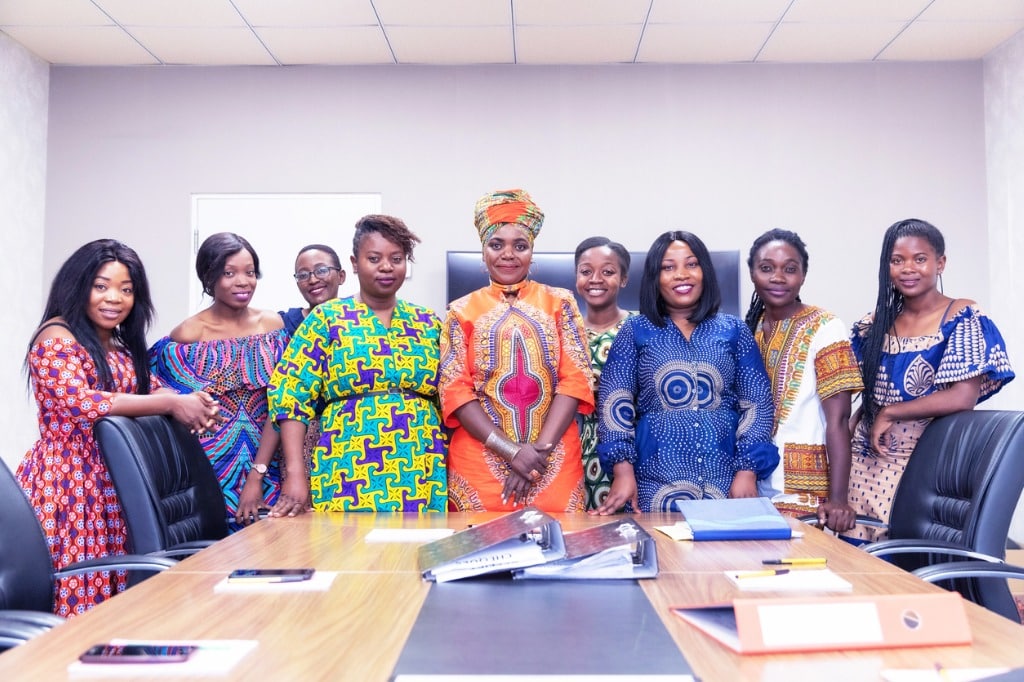
During the ANDE Annual Conference 2022: Resilient Entrepreneurship held in September 2022, AMI’s partnerships and gender lead Patricia Maina gave a data-focused “micro-talk” titled “Balancing the Scales: Is There a Post Pandemic Boost for Women SGBs?”. Looking at the trends and the findings from our 2021 Impact Report, we review the five things female leaders and owners of MSMEs who participated in AMI’s business growth programmes did differently, that might set them apart.
African female-led businesses were some of the hardest hit during the pandemic. According to the International Finance Corporation, female-led MSMEs reported over 50% of revenue loss during the pandemic. More than a quarter were forced to shut down their businesses, another half were forced to adjust their business models while 90% faced revenue losses.
However, there is hope, as female entrepreneurs repeatedly show through their resilience and readiness to embrace change, especially across Africa. At least that’s what data coming back from women-owned businesses participating in AMI’s business growth programmes is telling us; female-led businesses are not only doing things differently having survived the pandemic, they are thriving.
Here are the five things that stand out to us in our data and what female business owners told us, that explain how and why female-led MSMEs in Africa are doing things differently and as a result moving the needle in their small businesses:
1. Upskilling is a priority for Africa’s female entrepreneurs
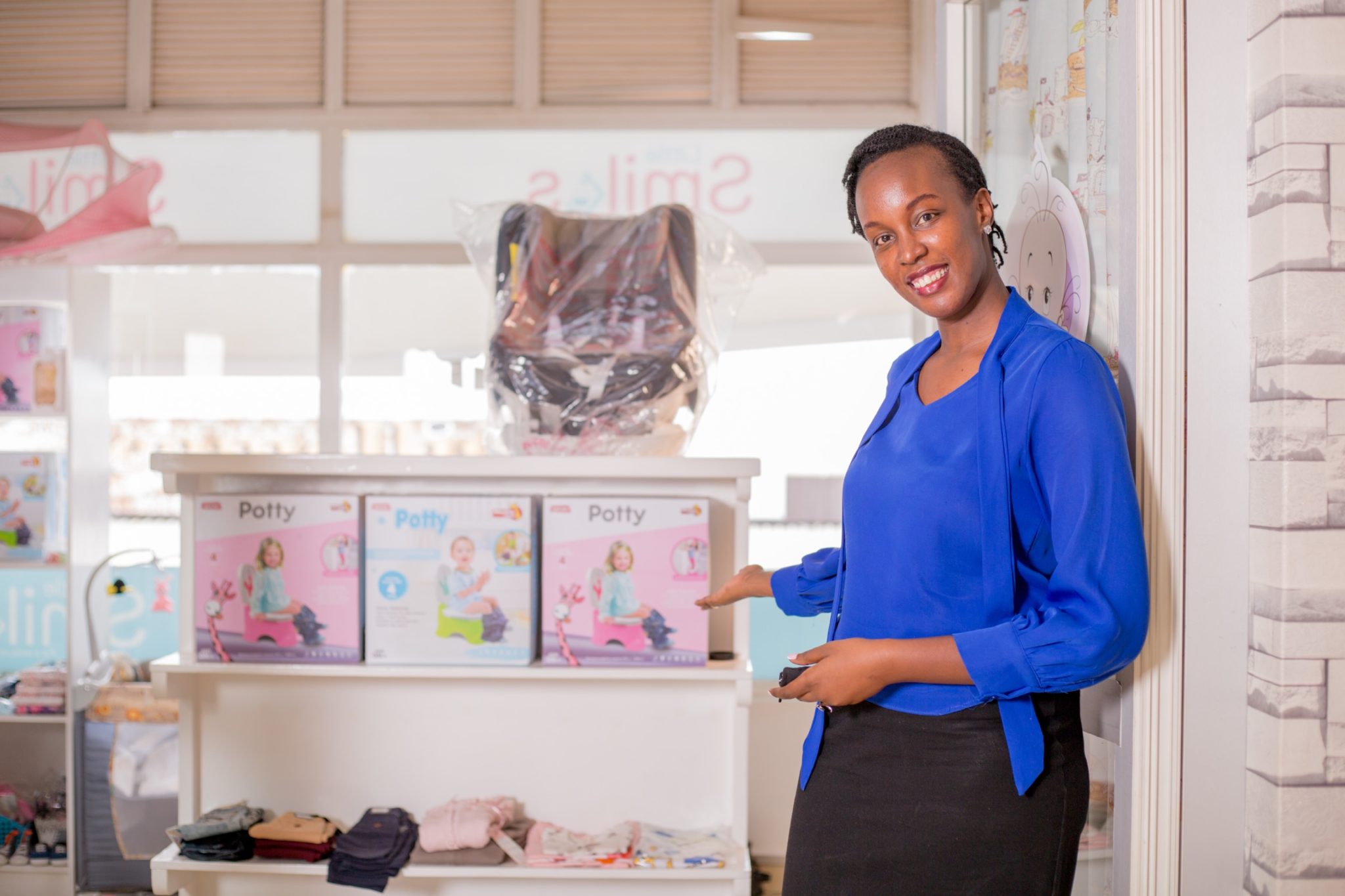
Linda Grace Rugema, Little Smiles, Rwanda
African Female entrepreneurs are taking the initiative to learn new skills that benefit their businesses post-pandemic. In 2021, 45 % of the participants in AMI’s business growth programmes were women. For Rwandan entrepreneur Linda Grace Rugama, taking part in AMI’s Business Survival Bootcamp has helped her improve the financial management of her children’s apparel business Little Smiles.
“I wanted to find better ways of managing my business so that I could stay in. The training was resourceful, it came at a time when I really needed it. I was able to access the practical tools including the sales report tool, the stock keeping tool, purchase and expenses tool, that enabled me to manage and organise my business better.”
Through skills learned at the boot camp, Linda was able to better steer her team by sharing the knowledge she had learnt on the course.
2. Women hire more women
AMI has been committed to creating partnerships and programmes that align with the United Nations Sustainable Development Goals (SDGs) including SDG 5: Gender Equality.
In 2021, partnering with Value for Women (VfW), AMI took a representative sample of the more than 1,000 businesses that had completed our flagship Grow Your Business (GYB) programme and analysed their financial performance and job creation metrics.
The research shows that female-led MSMEs, created more total jobs for women, compared to male-led businesses in 2021. Additionally, women entrepreneurs created more jobs than male entrepreneurs, despite women entrepreneurs making up less than half of the representative sample. Significantly, female-led businesses create more jobs for women, with 72% of women entrepreneurs reporting a female employee headcount of more than 50%, compared to 42% of male entrepreneurs reporting a majority female headcount. This data indicates that female-owned businesses could represent the biggest and most overlooked opportunity for job creation for women in a post-covid world.
3. Training and supporting their employees is top of mind
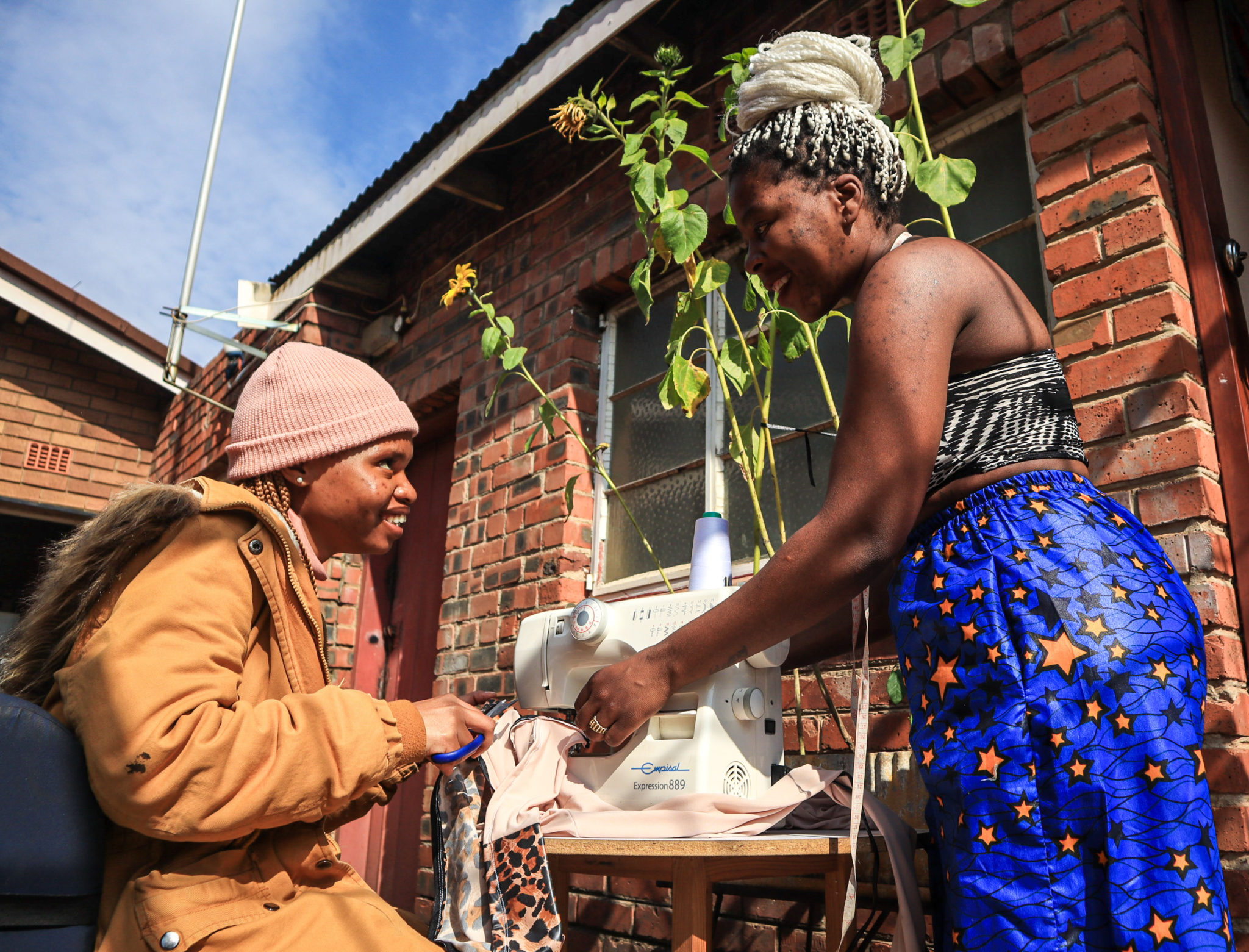
Patie Botha, Founder, Patie M Apparel
Female-led MSMEs don’t just think about the leader of the business, they are likely to offer training to employees as a way to only better their skills but also encourage them to become self-reliant. Patie Botha, who took part in AMI’s financial management training, is one such entrepreneur. Her business Patie M Designs, sells swimwear and lingerie for young upwardly mobile women and bespoke designs for men and children. In addition to running a profitable business, Botha offers training to young people in her community including pregnant teenage girls who face limited opportunities for education and employment. Once trained, these young girls either stay on and work in their business or leave to start their own.
Through the AMI programme, Botha has learnt to support her employees when it comes to creative problem-solving. “Before I gave an employee a task and the moment they encountered a problem, I’d solve it for them and end up doing the work. But the AMI programme taught me to support them in finding solutions. That way, my do-it-all tendency was overcome, for the good of my business,” says Botha. In addition, she has learned how to delegate and use financial tools to keep track of her expenses.
4. Learning and knowing how to pivot helps women-owned businesses stay agile
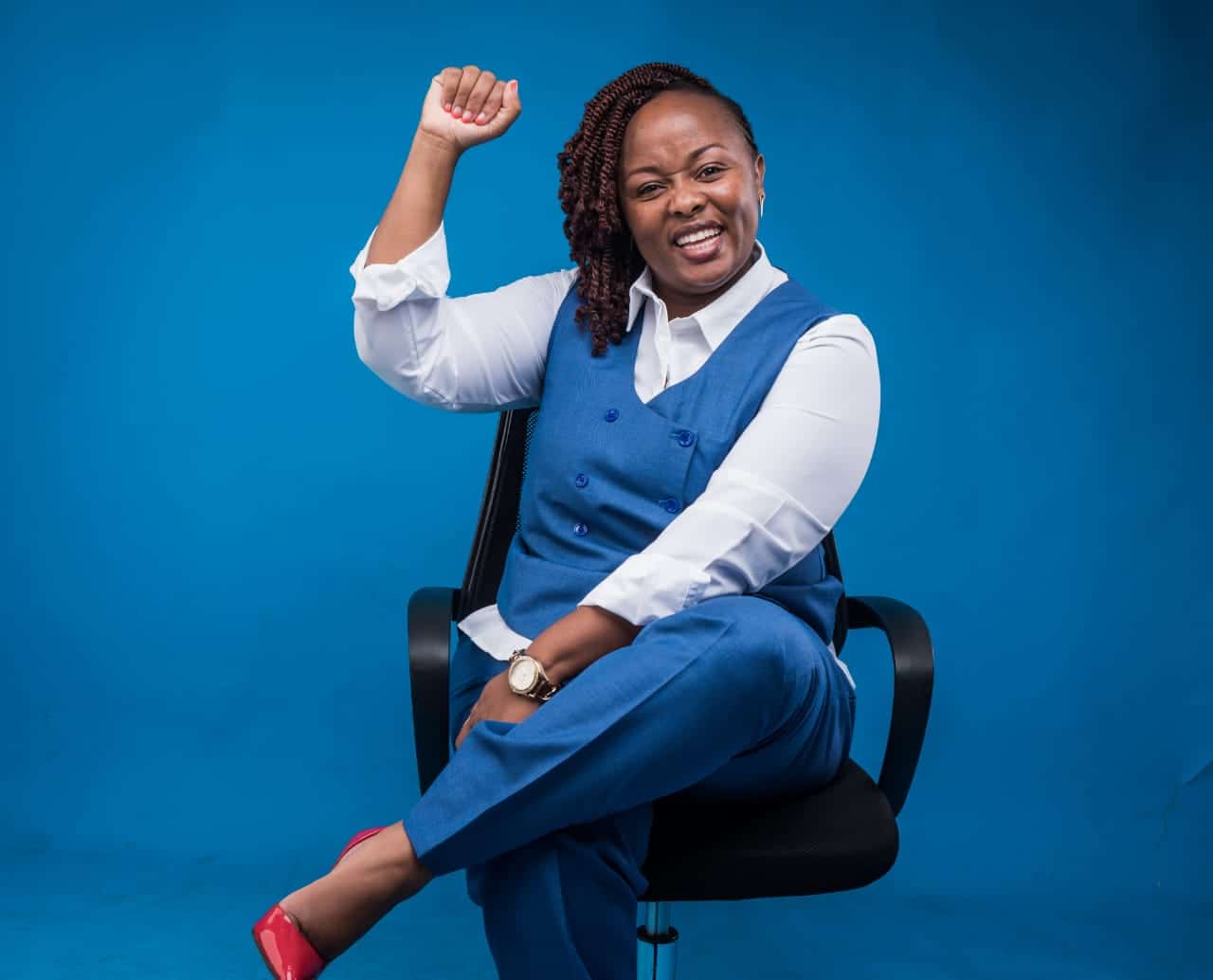
Wamaitha Karanja,- Founder and Lead Associate at Kernel Associates
Female-led MSME’s continue to find ways to stay in business by embracing change and discovering new avenues for revenue. For Kernel Associates founder Wamaitha Karanja, taking part in AMI’s Survive to Thrive programme, enabled her to find new revenue streams that helped keep her human resources company in business.
“We were kept afloat by a business line we’d not fully dedicated resources and time to. I was surprised by what a shift in mindset towards my business could do,” says Wamaitha. She credits her success to the risk management, cash flow and strategic planning skills she learned during the program.
“The AMI four action template is one among the many tools that I will carry everywhere I go. It’s through this template that I was able to identify what to eliminate, reduce, raise and create. Eventually, we survived! And to our surprise, we managed to pay off a few debts and increase our associates’ stipends.”
For Karanja, what she had formerly relied on as her main revenue stream now contributes just 25% of the total revenue, the shift in mindset and business is what helped her stay afloat.
5. Teamwork makes the dream work
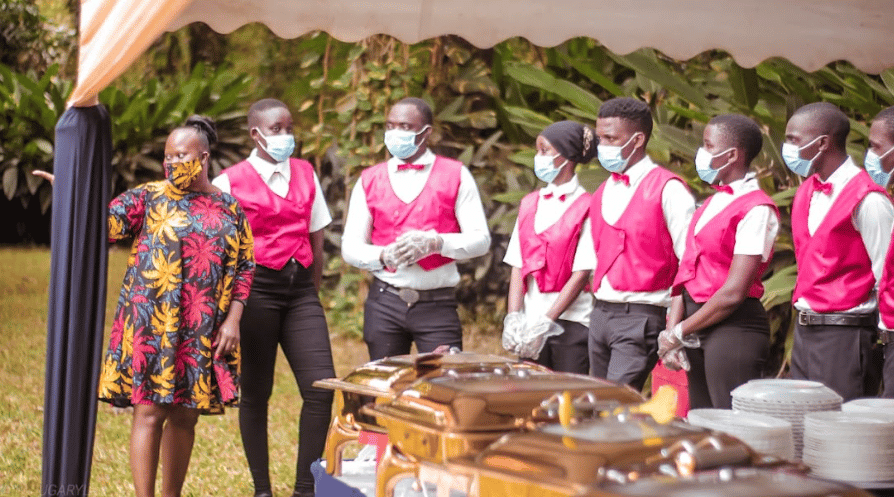
Petronilla Maria Nzomo, Founder, Peca Catering Services
When it comes to communication, female-led businesses tend to discard the top-down approach and lean into a more collaborative leadership style. By meeting their employees where they are, female-led businesses are able to better steer their teams and build trust.
This rings true for entrepreneur Petronilla Nzomo who used the skills learned in AMI’s Survive to Thrive program to entrust her team with more responsibilities.
“When I started my business, I was doing everything myself, from marketing, shopping and cooking, but now I have learnt to delegate. About 90% of what I was doing I have delegated and now I focus on the 10%, “ says Nzomo. Her catering company which was borne out of a love for cooking now also trains unemployed youth in cooking and baking as part of its Corporate Social Responsibility (CSR).
Despite women-led businesses creating more jobs, they still face challenges and grow at a slower rate than those of their male counterparts. It’s clear there is a need for support that is data-driven and tailored to their unique needs. Business Development Services (BDS) support programmes such as those offered by AMI are helping to meet this need.
AMI has worked with VfW to better understand what aspects of the programme are essential to women and incorporated that into the programme design. We are also improving our value proposition for women entrepreneurs by continually analyzing our data to ensure we are responsive to their needs. And, last but not least, we’re amplifying the stories of women entrepreneurs who are building thriving businesses and creating opportunities for more women across the continent.
If you would like to learn more about AMI’s impact and data from our programmes in 2021 download our 2021 AMI Impact Report: Skills to power growth and impact.
For more information on AMI’s impact work supporting women entrepreneurs, please connect with Patricia Maina, partnerships and gender lead for AMI Impact.
Related posts

To Grow or Not to Grow: The Founder’s Dilemma
For many entrepreneurs, the decision to scale is exciting yet challenging. Growth offers opportunities like better supplier rates and access to larger markets, but it also increases the complexity of managing operations, staff, and finances, forcing entrepreneurs to balance ambition with the demands and risks of expansion.

Will Humans Outperform AI in Management?
As AI continues to integrate into the workplace, the question of whether humans will outperform machines in management arises. While AI excels at analyzing data, automating repetitive tasks, and providing insights, humans still have a distinct advantage when it comes to leadership and decision-making.

How to Balance Rules and Energy for Effective Leadership
Jonathan Cook's article examines the balance between rules and creativity in effective leadership. He argues that while rules provide essential structure, excessive rules can stifle innovation and lead to bureaucracy. Conversely, a lack of structure can result in chaos. Cook emphasizes that good rules empower teams by fostering creativity while maintaining direction, highlighting the need for leaders to strike a balance that allows both energy and structure to thrive.
